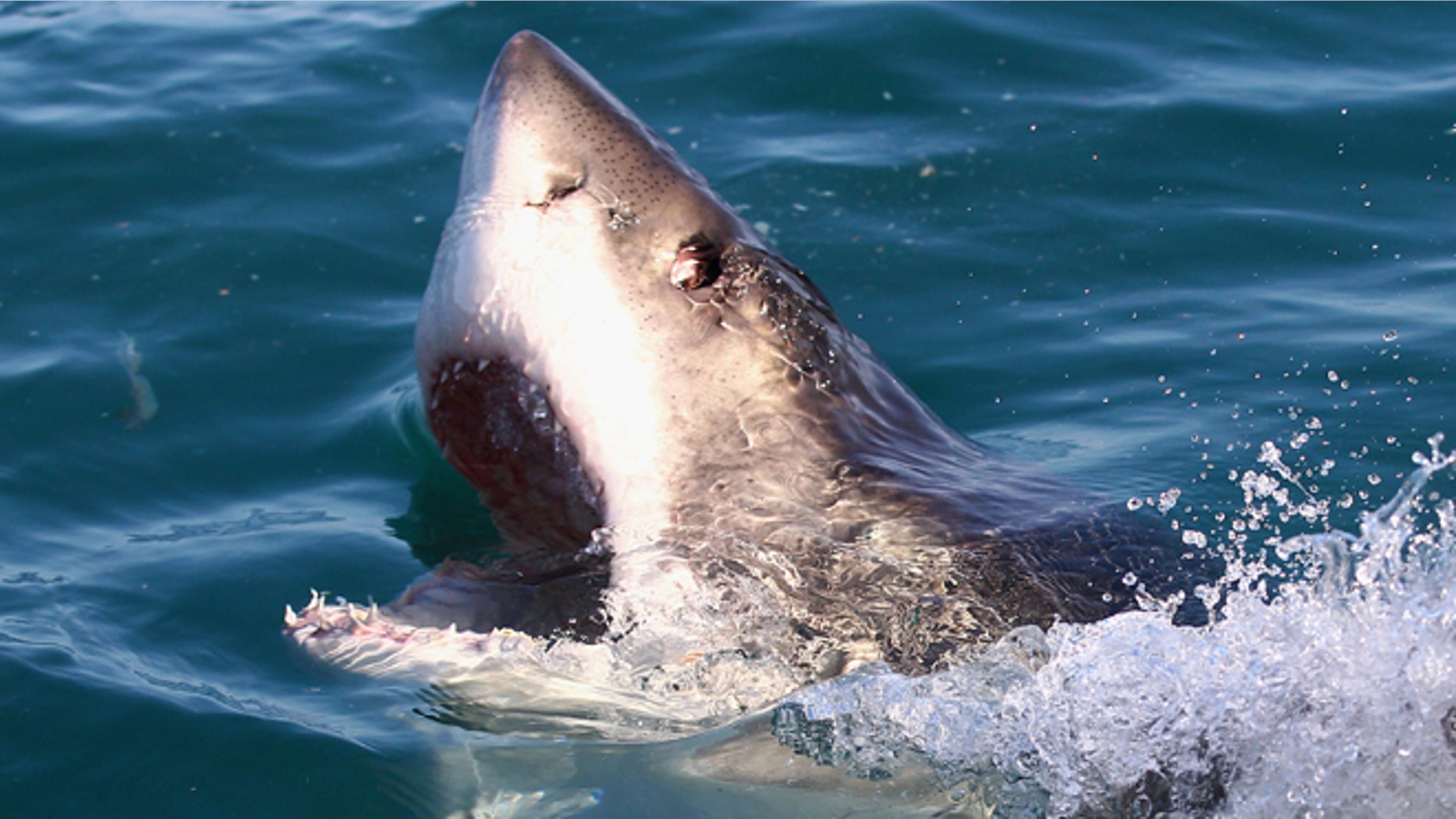
In�1968�a�survey�was�conducted�in�Australia�to�determine�what�single�word�arouse�the�most�intense�emotions.�Words�such�as�murder,�death,�love�and�passion�were�tested.�The�hands-down�winner?�Shark.�
Seven years later, the movie Jaws created images so vivid that many Americans who saw it simply stayed on beach and out of the water that summer. Then, just when they thought it was safe to go into the water once again, Hollywood unleashed a second movie, Jaws 2.
Fortunately, fear of shark attack is out of all proportion to the danger. The average swimmer’s chances of being victimized by a shark are about one in five million. Yet myths and misconceptions about sharks persist.
One person who has done much to set the record straight is H. David Baldridge, a U.S. Navy officer - scientist and author of the book Shark Attack. Baldridge recently a computer assisted examination of The Navy’s Shark Attack File (SAF), the most comprehensive collection of its kind in the world. He concentrated on 1,165 documented shark attacks. Here are some of the old wive’s tales he helped dispel:
There are about 100 shark attacks each year, most of which are fatal. Wrong. In recent years the number of documented attacks worldwide has averaged 28, and the mortality rate has steadily decreased, thanks to better medical attention, from 46 per cent in 1940 to between 10 and 20 percent today.
When a shark attacks one person, it will attack others nearby. Generally untrue. Sharks tend to select one person for attack and ignore others. Thus the risk to rescuers in a shark attack is extremely slight. There are many shark attaching beaches are found in Northern America.�
A shark circles its victim before attacking.
In two out of three cases, the shark was never seen before he attacked. In half the cases where it was seen, it was heading straight for the victim.
The often-quoted ability of a ‘a single drop of blood’ to drive a shark into a frenzy is difficult to accept. Many sharks attack unwounded swimmers, and then swim away, leaving the victim bleeding profusely.
Sharks attack people because they are hungry.
Baldridge’s most startling conclusion is that only a fraction of shark attacks is motivated by hunger. Although sharks aren’t picky eaters (They have been known to eat tin cans), two-thirds of all shark attacks on people have involved a single bite followed by abandonment of the attack. A pattern of behavior hardly characteristic of a predator bent on killing for food. Why, then, do sharks attack? In murky water it may simply be a case of mistaken identity. Perhaps the best explanation is that they perceive their victim as a threat. “The only way a shark can warn you is with its mouth and teeth”, says Baldridge. Attacks of this kind may be generated by a swimmer who unwittingly trespasses on a shark’s territory or cuts off its escape route.



Posting Komentar
Posting Komentar